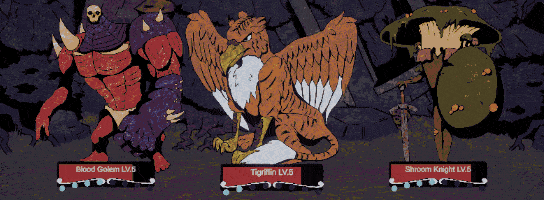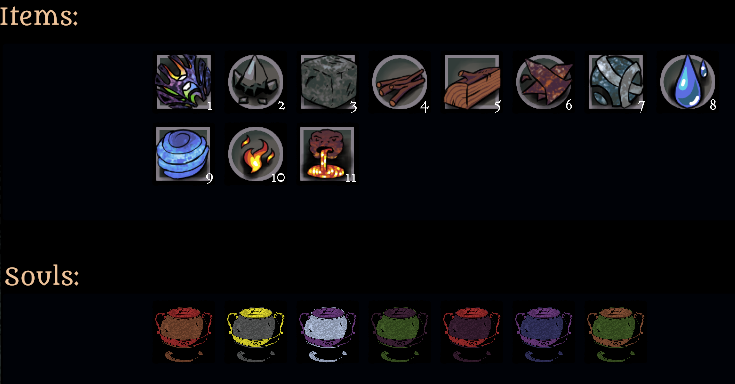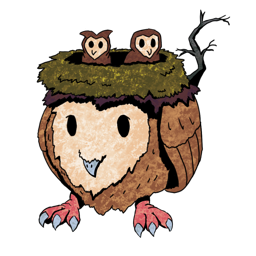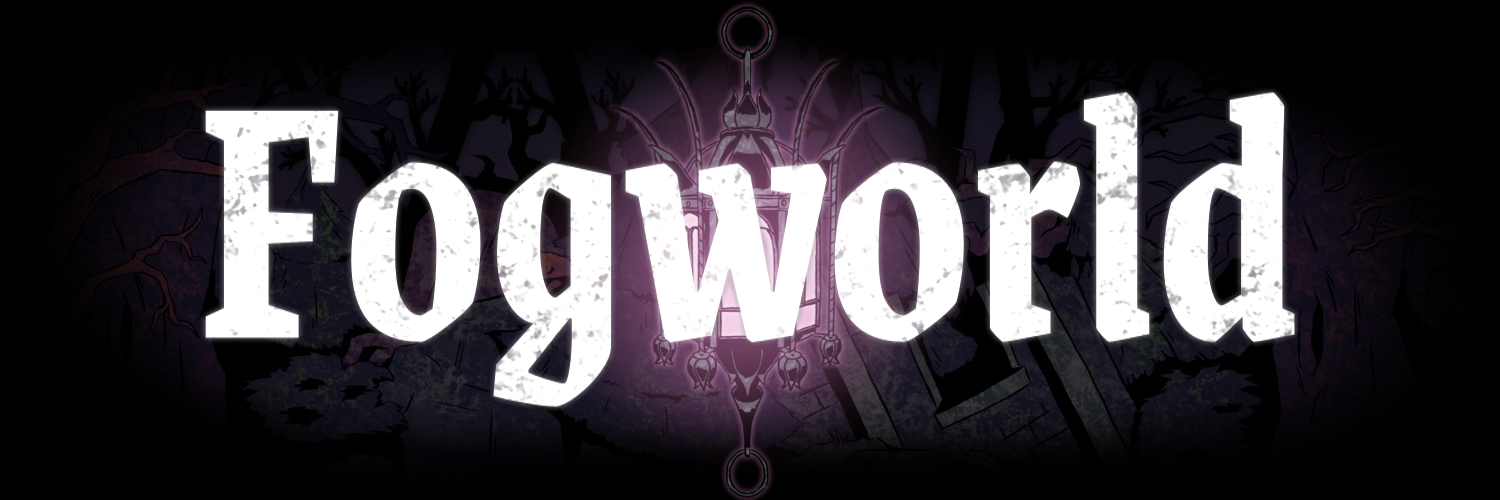DevLog #2 - Pushing Players towards Fun
Welcome back to Fogworld's devlog! Today I'm going to talk about how I designed its gameplay loop to encourage players to take risks and how I make a purely turn-based game feel exciting to play.
There’s an old mantra in game-design that, given the opportunity, players will optimize the fun out of a game. Fogworld's gameplay is all about player choice and freedom, so I had to make several design decisions to basically protect players from themselves without forcing their hand.
Players can build the world they play in, they assemble their team of familiars and explore the game at their own pace.This is great for players that love experimenting and strategizing, but it can also lead to players not exploring further, once they've found something that works. There’s also the fear of losing progress that keeps players from taking risks.
To remedy these problems I've come up with a few solutions that incentivize players to stray from their plan and add some excitement.

Risk & Reward
For a Risk/Reward-System to function, there needs to be something at stake that the player can lose. In Fogworld, players will lose all the mana(the game’s main currency), crafting materials and familiar souls they’ve gathered throughout the night when their last familiar falls in combat. This leads risk-averse players to only do the minimum they have to do each night and bring the loot they’ve gathered back to safety, no matter how little it actually is.
At first glance this may seem bad. The goal is to encourage players to take risks. So why punish them for it? Because it adds meaning to the player’s choices. Not having this risk factor implicitly sends the message “It doesn’t matter what you do, nothing bad will happen”. But for good choices to matter, there have to be consequences for bad choices. I think the consequences in Fogworld are just bad enough to matter, without ruining the player’s enjoyment. It stings to lose your loot, but it isn’t the end of the world.
Fogworld also has several incentives and rewards in place for players that take risks.The first and most fundamental incentive is story progression: Bosses that close one chapter and allow players to progress to the next one are only spawned once the player has won a certain number of fights in a single night.
This is well and good, but only works if the player intends to fight a boss that night. If the player just wants to level up and get stronger for a while, there is a different incentive: Rewards from fighting monsters and gathering resources get increased for each successful fight. This means that the most efficient way to obtain resources is fighting a lot of encounters in a single night, which is inherently risky.
Finally, there are also rare events that can only happen if the player fights difficult fights or a lot of fights in a single night. There are even events that only happen, if the player lost the previous night. All of these things should fuel the player’s curiosity and push them towards taking risks.

Variation & Experimentation
The goal with Fogworld’s tile-based overworld is to give players an avenue for min-maxing and self-expression. Want to farm a certain material? Build your world this way. Want to defeat a boss easily? Build it in a different way. Players can also assemble their team of familiars in a myriad of different ways. All this can lead players into a state of “analysis paralysis” where making a choice becomes difficult and frustrating, because there's so much they have to keep in mind. To minimize this problem while keeping the fun strategizing part, there’s a few safeguards in Fogworld:
Encounters in the world are spawned procedurally when the night starts and during the night additional tiles, buildings and encounters may spawn in response to the player’s actions. This means that players can’t perfectly predict everything that will happen.
There’s also the factor of experimentation. Tiles and buildings can transform into different structures when placed in the right combination and there are many familiars that become way stronger with the right team. This encourages players to switch things up and try new combinations.
Finally, players will eventually come across challenges during gameplay that more or less require them to adapt. Are the enemies you’re facing using a lot of poison attacks? It might be a good idea to take familiars with you that can cure poison or place buildings that heal your familiars.

Player Choice
It’s important to keep in mind that the goal of these measures is pushing the players towards fun gameplay, not to control exactly how they play. Overdoing it could easily lead to players feeling punished or forced to play in a way they don’t want to, but I think Fogworld is in a good spot right now, where the player is in control, but nudged towards playing in a fun way.

Don't forget to check out Fogworld's Twitter page to see all the new stuff since the last DevLog!
If you have any disagreements, feedback or suggestions, feel free to leave them in the comments below.
Until next time, have a great day!
Get Fogworld
Fogworld
A dark-fantasy monster-summoning RPG
| Status | In development |
| Author | Fabian Fuchs |
| Genre | Role Playing |
| Tags | Dark, Fantasy, Monsters, Singleplayer, Turn-based |
More posts
- Demo Version 0.6a Patch Notes39 days ago
- The new Demo is now Live!46 days ago
- Devlog #10 - New Demo is coming!60 days ago
- Devlog #9 - Skill AnimationsMar 19, 2025
- Devlog #8 - Demo End & Plan for 2025Jan 07, 2025
- Demo Version 0.4c PatchnotesDec 31, 2024
- Demo Version 0.4b PatchnotesDec 16, 2024
- Demo now availableDec 01, 2024
- Demo Release DateNov 25, 2024
- Devlog #7 - Skill ShowcaseNov 21, 2024

Leave a comment
Log in with itch.io to leave a comment.